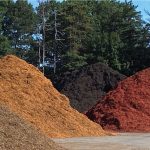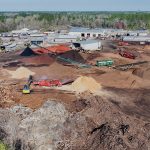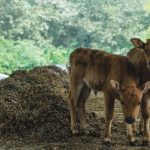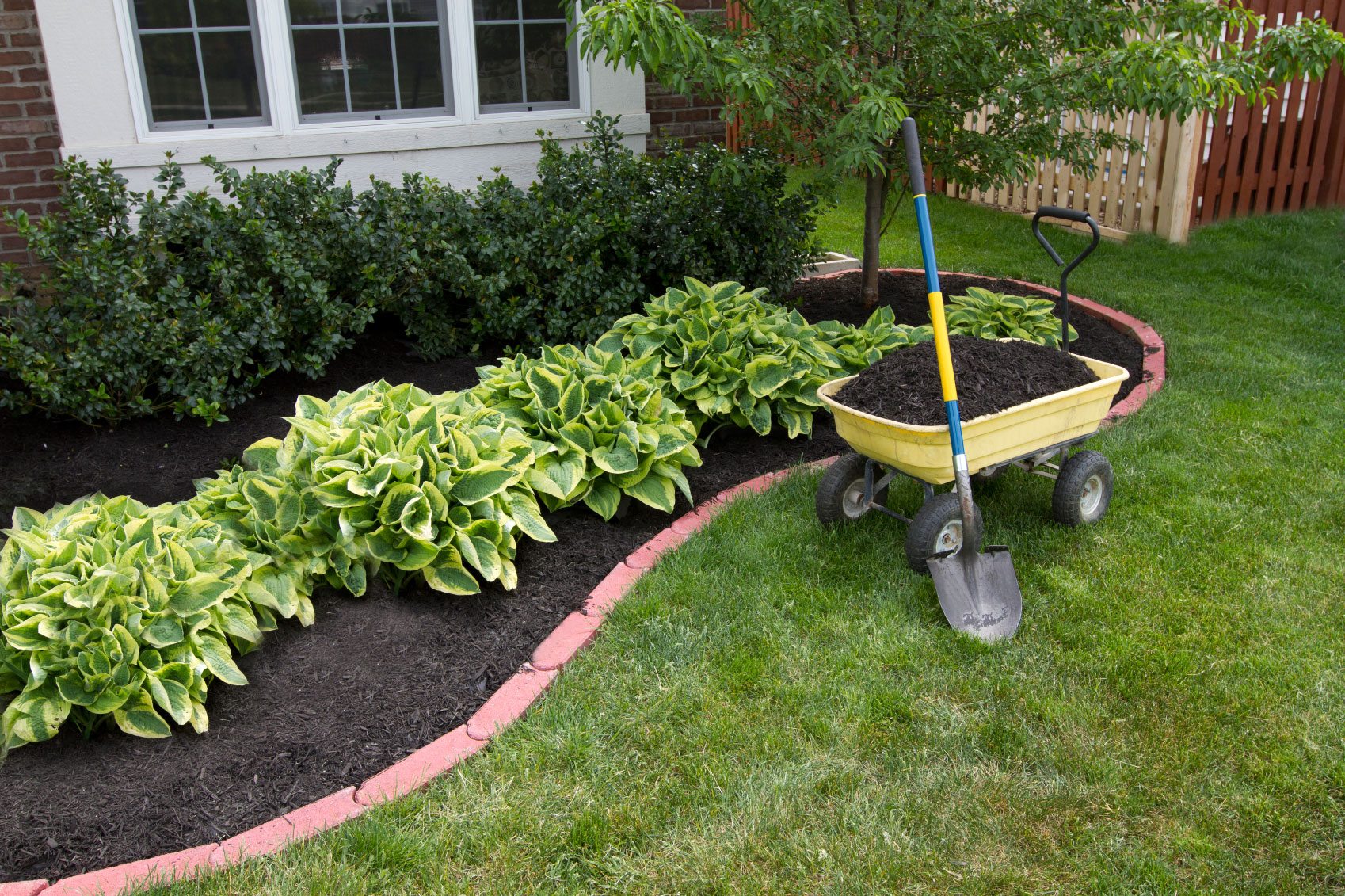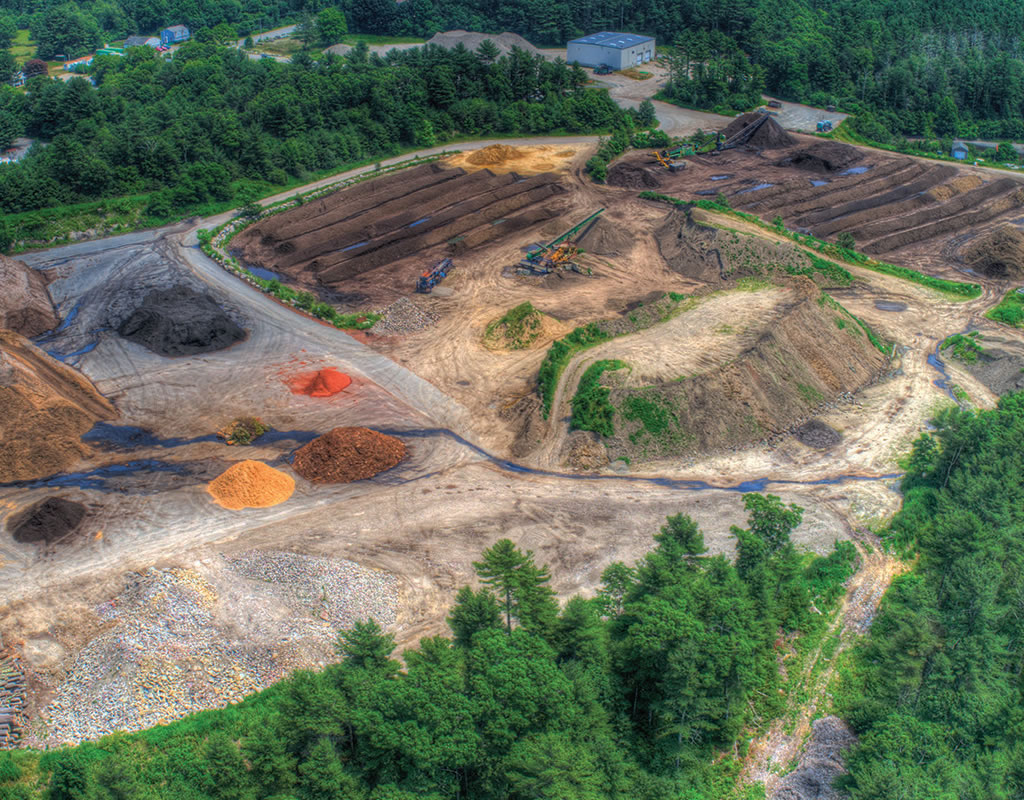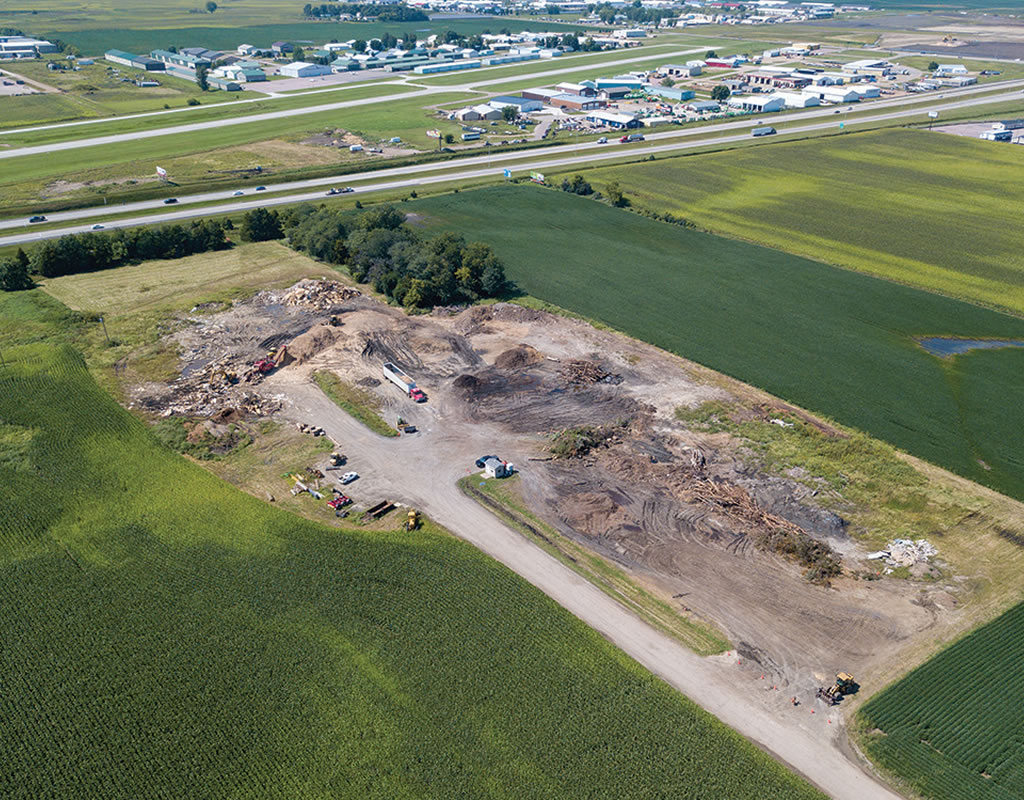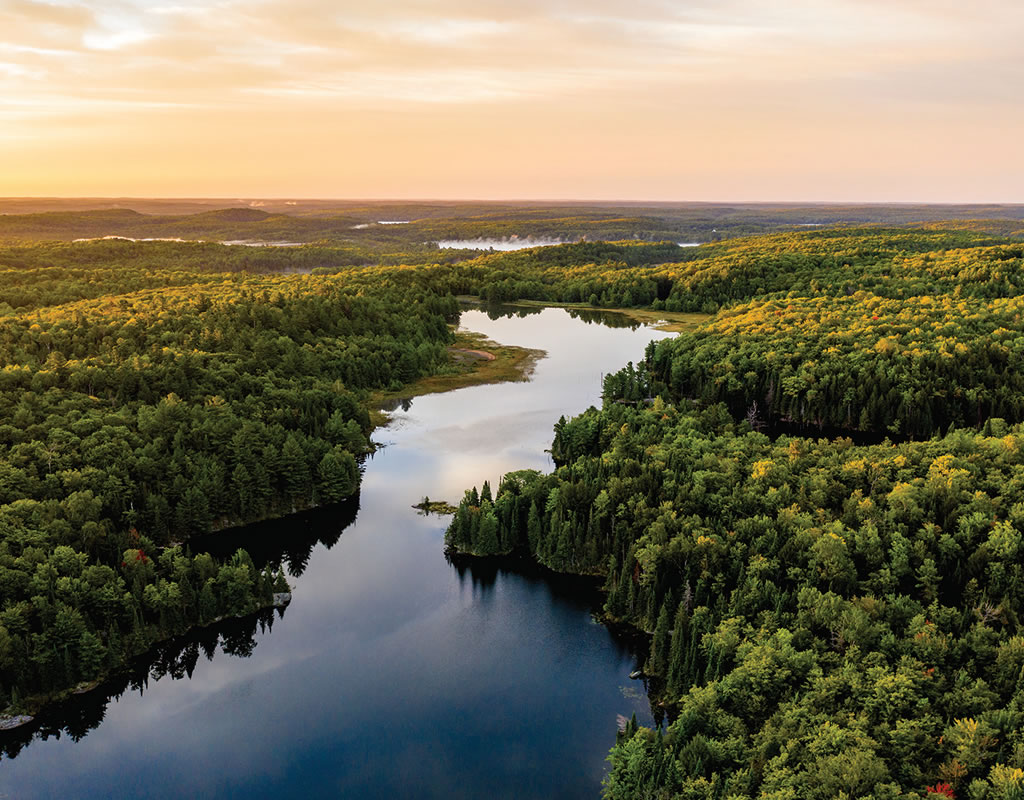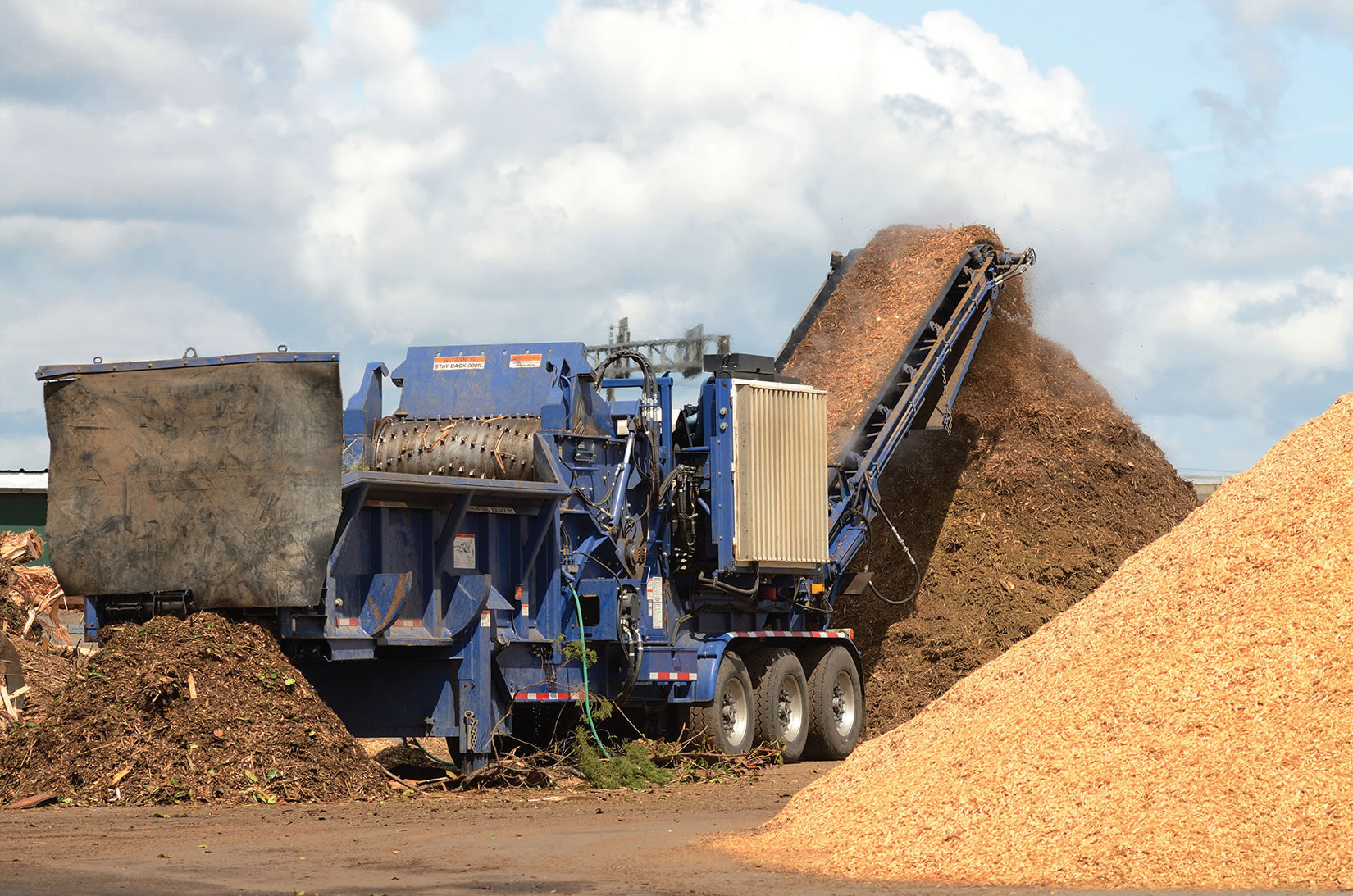By P.J. Heller
Micah Hollinger remembers his grandfather saying how he survived his first few years in business “on love and turnips.”
“That’s kind of been our motto,” says Hollinger, chief executive officer of Resource Recycling Inc., in Lima, Ohio. “We can make it on love and turnips, if nothing else.”
Love, in this case, is his dedication and passion for the mulch and soil business. Turnips symbolize basic sustenance or living on very little or just enough to get by.
While that may have been true when Hollinger first got into the mulch business nearly two decades ago, today his company offers some two dozen different products – mulches, soils, compost, stones and sand, either in bulk or bags – and employs 61 people.
Looking ahead, he says he’d like to be running four to six bagging lines – up from the two bagging production lines for private label and retail applications currently in use. He’d also like to double his bulk sales.
“We’d like to get to 1 million cubic yards of mulch and 200,000 yards of compost,” he says.
That’s not too bad for someone who started the business with only his wife, Melissa, and one other person. When asked about their business plans back then, he would tell people, “We just want to stay in business until the next year.”
Hollinger admits he knew nothing about the mulch, soil and compost business when he first started.
“I didn’t know anything about it, not the first thing,” he says. “It was kind of trial and error mostly. I’ve probably made triple the amount of mistakes as most people in my industry, but we've learned from them and kept going.”
In his first year in business, he had another company producing mulch for him on his property. He subsequently rented a facility in Chillicothe, Ohio, for bulk mulch and discovered it had a bagging line, so he began offering bagged mulch. As the business grew over the years, he purchased grinders, a coloring machine and other equipment. In 2019, he ordered his first bagging equipment.
That purchase came just as the pandemic was beginning, and Hollinger said he “pretty much freaked out.”
“Everything was shutting down,” he recalls. “Like, what are we going to do?”
Luckily, several major companies contacted Hollinger asking if he could co-package for them. The business grew steadily from there.
Hollinger also started shipping products in his own Resource Mulch-branded bags to big box stores such as Menards and Rural King. His products can also be found in garden centers as well as being available to homeowners and landscapers from a store on the Resource Recycling site.
“Best garden soil, compost and mulch I've ever used,” wrote one customer in a Google review.
“This is an excellent place to get your mulch, topsoil, or compost that you need for your outdoor projects,” wrote another. “All of their products are top-notch, and the staff is extremely helpful.”
The success of the business led to adding a second bagging line in 2022. The company runs two shifts and produces about 5 ½ million to 6 million bags a year. All equipment in the yard is powered by electricity, rather than diesel, to better control costs. Bagging lines are all automated robots to cut down on labor. There are about 20 different conveyors to move product rather than requiring loaders.
“I like people, but if we can use a machine rather than a person to move mulch there’s less room for an error or accident,” Hollinger says.
Resource Recycling distributes its bagged and bulk materials in a 150-mile radius of Lima.
Hollinger describes growing up on a farm, always wearing hand-me-down clothes and not having much money.
The one thing he did have, though, was a keen interest in machinery.
“I just always liked machinery,” he recalls. “I started running equipment when I was probably 12 years old. I always liked running equipment and so that's the main reason I kind of got into some of this. It just had cool equipment. It was fun.”
He also saw it as a seasonal business, much like farming. That would allow him to spend time with his three daughters and two sons during the summer. His teenage daughters now help out in the business.
That sense of family also runs through the business, although he admits it gets harder to maintain as the staff grows. Many of his employees have been with him for years.
“We pay somebody to come in and cook lunch for us a couple of days a week,” Hollinger says. “I'm a big believer in getting people together to break bread, and employees get along a lot better when they eat a meal together. At the end of the day, we're all a team.”
The company’s mulch season runs 24 hours a day from September to July. Resource Recycling (also known as Resource Mulch or Re:Source) produces between 400,000 and 500,000 yards of mulch each year on its 70-acre site in Lima, he estimates.
Mulch accounts for about 85 percent of the business, with materials coming from sawmills, land clearing, and green waste collected from some 20 municipalities. Ice storms and tornadoes also generate material. The company offers free green waste and yard waste drop-off for customers.
When the 70-acre site became too clogged, Hollinger in 2024 purchased 120 acres across the road for the composting facility. Not all of that acreage is being utilized yet, he notes.
Compost accounts for 15 percent of the business. Hollinger expects to produce 75,000 yards of compost this year and expects to double that amount in 2026.
Among the materials composted are eggshells.
“We work with a lot of the big chicken farms and take all their eggshells from liquid egg facilities and compost them,” Hollinger explains. Those eggshells previously would be sent to a local landfill.
“We do at least 50 tons a day, six days a week,” he says, noting that figure also includes waste feed, litter, as well as tomato waste from canning facilities and other food products. Byproducts from a turkey and pig farm that can’t be used for anything else are also composted.
There is no shortage of eggshells.
Ohio is one of the largest poultry-producing states. In February 2025, it surpassed Iowa to become the state with the most commercial egg layers (39.9 million vs 39.4 million in Iowa), according to the U.S. Department of Agriculture.
The decline in Iowa’s numbers was attributed to outbreaks of the highly pathogenic avian influenza (HPAI). Ohio also saw significant losses due to HPAI, with more than 24 million layers depopulated (destroyed).
“We do a lot of mortality composting with avian bird flu,” Hollinger says. “We go out on farms and compost it and screen it and then we haul all the reject material back to our main compost facility.”
Composting has been used successfully for nearly two decades throughout the United States to control outbreaks of low pathogenicity avian influenza and highly pathogenic avian influenza, according to the USDA. An HPAI outbreak in 2014–2015 claimed approximately 50.5 million birds in 21 states; composting was used for 85 percent of the poultry carcasses, according to the U.S. Environmental Protection Agency. A 2022–2023 HPAI outbreak affected more than 60 million birds.
“Composting can be effective with most bird types and poultry house designs,” the USDA says.
While Resource Recycling takes in food scraps from production factories, it does not depackage food waste.
Hollinger says a lot of credit for the success of the business goes to his wife for supporting him. She also works at the business.
“I'm not a very smart guy,” Hollinger says. “I didn't graduate high school or go to college but I'm not afraid to take a chance either . . . and my wife stood beside me and said, ‘Let's do it.’”
He cites the time he was “taking a gamble” by spending $1 million on his first bagging line and not knowing if he had the work for it.
“Having a spouse who says, ‘We’ve got this...for better or worse, we’ll make it (makes all the difference),’” he says.
It was also Melissa Hollinger who encouraged selling packaged products.
“It helped set us apart from others who just do bulk,” Hollinger says.
Melissa Hollinger also convinced her spouse to support A21, a global non-profit that works to fight human trafficking. Every Resource-branded bag contains the slogan, “Buy a bag, change a life,” with a portion of every sale going to A21.
That helping concept is part of Hollinger’s philosophy for the business.
“What we’re really focused on is solving problems for a bigger industry, whether it’s ag or whatever,” he says. “We’re really focused on solving problems for other people, whether that’s related to yard waste or food waste. What can we do to solve the problems and alleviate some of their pain points? And what can we make out of that that’s got value for somebody else.”
Related News
Subscribe Today
Every other month, Soil & Mulch Producer
News brings you important stories about:
• New Technology
• Products
• Industry News
• Research Studies
Soil & Mulch Producer News features articles and services relevant to your daily operations.

